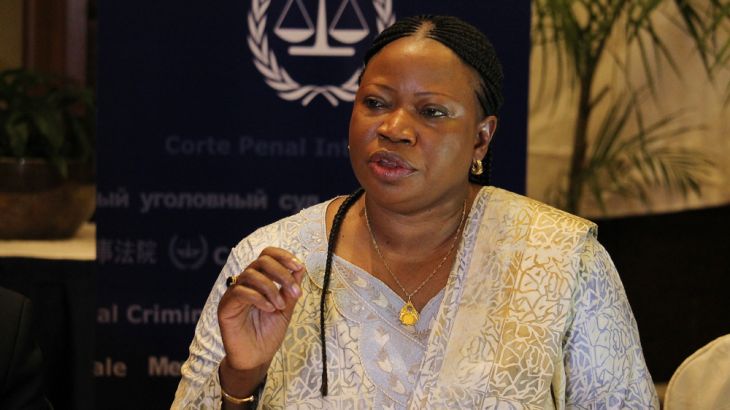
Fatou Bensouda: S Africa ‘had to arrest Omar al-Bashir’
The ICC chief prosecutor discusses Sudan’s president escaping justice in South Africa and alleged war crimes in Gaza.
When Sudan’s President Omar al-Bashir attended a summit in South Africa in June 2015, he manged to leave the country – despite a high court order banning him from leaving because of an outstanding warrant for his arrest on charges of war crimes and crimes against humanity.
”I
…. I believe that in this particular case there was no ambiguity. The obligation of South Africa under the Rome Statute… was really clear. What they had to do is to arrest and surrender Omar al-Bashir to the ICC.”]
Keep reading
list of 4 itemsICC seeks arrest of Russian officers over infrastructure attacks in Ukraine
Can international justice stop Israel?
What will be the outcome of the ICJ genocide case against Israel?
The South African government did not stop Bashir from leaving and the incident is considered by many as a major setback to the cause of international justice.
The warrant had been issued by Fatou Bensouda, the chief prosecutor of the International Criminal Court (ICC).
In The Hague, Bensouda and her team of analysts and investigators try to bring those responsible for the most heinous crimes to justice. It is a seemingly endless process.
“What motivates us always is to have that opportunity to give a voice to the victims,” she says.
But is it making a difference?
Critics say the international court has had such little impact that it is in danger of becoming obsolete. Others, however, point to the move just this last week by Palestinians to bring charges of war crimes against the Israeli government as an example how vital the ICC still can be.
Fatou Bensouda, the chief prosecutor of the International Criminal Court talks to Al Jazeera about Sudan’s president escaping justice in South Africa, alleged war crimes in Palestine and Israel, and responds to those who challenge the credibility of the court.
You can talk to Al Jazeera too. Join our Twitter conversation as we talk to world leaders and alternative voices shaping our times. You can also share your views and keep up to date with our latest interviews on Facebook.